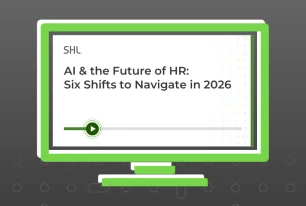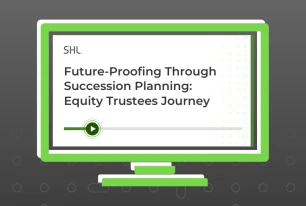Blog
Lessons in Leadership Hiring from 30 Years in Recruitment
After 30 years of helping companies hire top leaders, Liz Kitchen shares the critical lessons she’s learned about what really works—and what doesn’t—in executive hiring.
Share

Share
Leadership Hiring is High-Stakes—Here’s What HR Leaders Need to Know
Leadership selection is some of the most serious decision-making a company must do. If it fails, the consequences can not only be commercially devastating but very visible. The more information you have, the more able you are to avoid this. This would be true in any other major commercial decision, such as a capital investment or an acquisition, so why not do the same in recruitment?
Over three decades ago, I began helping large organizations find a better, more accurate way to hire leaders to guide their businesses through change, growth and ultimately success. Here are three key lessons I learned during that time.
Lesson 1: Clarity is Everything—Define Success Before You Start Hiring
One of the biggest hiring mistakes? Rushing into the process without a clear understanding of what success looks like. For precision in selection, a ‘model profile’ should be built for the job holder that provides an objective yardstick for all candidates. You have to accept the perfect candidate won’t always be found, so you need to understand which of the compromises you are left facing will be the most acceptable and do so in an analytical, rather than emotional, manner.
This means having:
- A robust job description with critical values the company requires.
- An understanding of what behaviors, skills, thinking style and judgement will lead to success.
- A list of current and upcoming challenges foreseen for the successful candidate.
- Knowledge of the person to whom the jobholder will be reporting and their peers – ideally this would be assessment data, that could be compared accurately to that of potential candidates.
Lesson 2: Assessments Will Uncover Meaningful Insights
At the start of my career, assessment was not widely known as an effective way to hire the best leaders. Initially the CEOs and MDs I worked with resisted assessing senior candidates, as they thought they wouldn’t learn anything new or feared that asking them to complete an assessment may cause offence. However, as assessments proved consistently effective for junior and mid-level roles, more senior leaders recognized their impact. Once they understood the value that assessments like the OPQ and other aptitude tests could bring, they became as natural as wearing a seatbelt—once seen as a hassle, now thought of as essential for safety.
Now it is much better understood that you need to obtain objective data to understand a candidate’s strengths and skills gaps and that in doing so, you can appoint the quality of leaders that will best guide the business towards achieving future growth and success. If you accept that critical reasoning capability is the cornerstone of job performance and thus also a guide to development potential, the marriage of personality and ability assessment is the most powerful method to assess competency.
In development scenarios, these insights open dialogue about issues that might otherwise be hard to access. For example, where there are exceptional or lower than average scores in certain areas, these can create topics for discussion that otherwise wouldn’t be available.
Lesson 3: Don’t Overvalue Experience or Qualifications—Look at Leadership Potential
Particularly for leaders, there was traditionally a heavy reliance on “people you know” or who came from the right background and much more emphasis on first impressions. As a result, there were some socially impressive but incompetent people in senior posts, sometimes with dire commercial consequences.
It’s tempting to hire leaders with experience in the same industry or one with a great resume and qualifications but that can be a limiting approach. The best leader might not always have the most experience on paper and it is really important to understand that academic qualifications are not a true indicator of reasoning ability, (yes, really!). A full assessment of working personality and reasoning ability provides a much more accurate picture of a candidate and their potential to succeed in the organization.
Learn more about how SHL can help you identify leadership potential to hire and develop leaders for future success.








